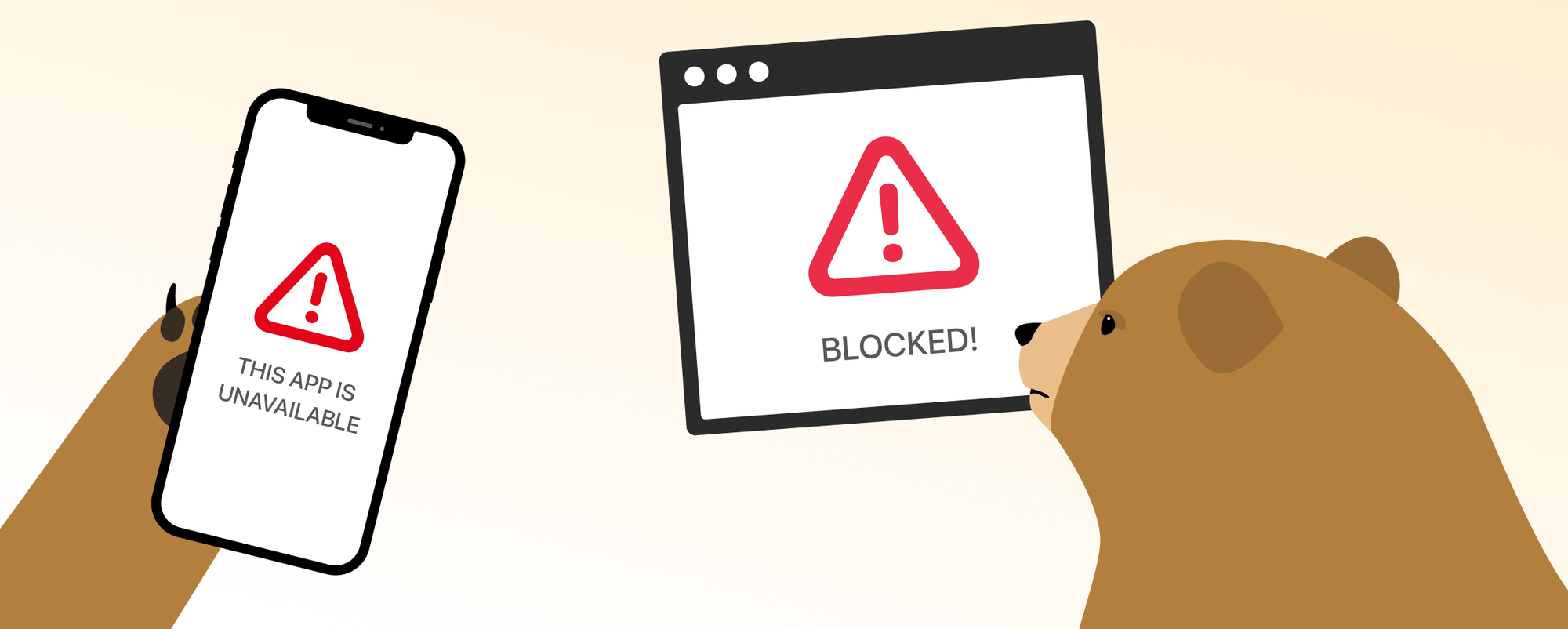A Bear's Take on the UK's Online Safety Act
If you've been on the Internet lately (or if you are from the UK) then you would have probably heard of the UK's new Online Safety Act.
The UK government promised to make Britain "the safest place in the world to be online" by enforcing strict and invasive identity verification steps in order to access normally available online content. As of 25 July 2025, services have a legal requirement to protect children online through the Online Safety Act, but what they've actually delivered feels more like a digital prison than digital protection.
At TunnelBear, we've always believed that everyone should have access to an open internet - one without censorship or geographical restrictions. The UK's Online Safety Act represents everything we stand against - government overreach that restricts freedom under the guise of safety.
What exactly is the UK Online Safety Act?
The Online Safety Act received Royal Assent on 26 October 2023, but its most restrictive provisions only came into effect recently. The law requires online platforms to implement "highly effective age assurance" to prevent children from accessing what the government deems "harmful content."
Sounds reasonable, right? Here's where things get problematic.
The Act covers far more than just adult content. Content that must be restricted for under-18s includes pornography and content that "encourages, promotes, or provides instructions" for self-harm, eating disorders, or suicide. The Act also requires that content which features bullying, abusive or hateful rhetoric, harmful substances, or depicts or encourages serious violence, injury, or dangerous stunts and challenges must be blocked behind "age-appropriate" restrictions.
But here's what the government didn't tell you: Internet users in the UK trying to access support pages for alcohol addiction or child sexual abuse will now find their way barred. Survivors of sexual assault can no longer freely access advice and support groups on Reddit. Content about the wars in Gaza and Ukraine has similarly been blocked. There are even alarming reports of social media sites blocking political and legal content, with UK users unable to see parliamentary speeches and legislative amendments.
The censorship Bear facts
The Online Safety Act isn't just about protecting our cubs - it's about controlling what British adults can see and do online. It mandates that any site accessible in the UK—including social media, search engines, music sites, and adult content providers—enforce age checks to prevent children from seeing harmful content.
The result? Mass internet censorship disguised as child protection.
Many websites and apps stated they would introduce age verification for users in response to the 25 July 2025 deadline. While this includes pornographic websites, it also has been applied to many additional social media sites and services.
Even Wikipedia is fighting back. The Foundation warned that complying with the law would compromise Wikipedia's open editing model and invite state-driven censorship or manipulation. In May 2025, the Wikimedia Foundation launched a legal challenge against potential designation as a "category one" service under the Act.
Why this should matter to everyone
The Online Safety Act represents a fundamental shift in how governments can control digital expression. International watchdog Article 19 warned that the Act is "an extremely complex and incoherent piece of legislation" and constitutes a serious threat to freedom of expression and access to information. The Open Rights Group labelled it a "censor's charter".
Here is what's really happening:
- Privacy invasion: Age verification requires sharing personal data, including photo ID or facial recognition scans
- Digital exclusion: People without traditional ID or devices are locked out of the internet
- Algorithmic discrimination: Facial recognition systems often fail for people of colour and marginalized communities
- Government overreach: The Act grants the Government of the United Kingdom extensive powers to regulate speech, set enforcement priorities and pressure platforms into removing content without judicial oversight
British Bears are fighting back
The response from UK internet users has been swift and decisive. Just days after age checks came into effect, VPN apps became the most downloaded on Apple's App Store in the UK, and a petition calling for the repeal of the Online Safety Act recently hit more than 400,000 signatures.
British internet users are voting with their downloads - and they're choosing freedom over government-mandated censorship.
While the UK government uses a sledgehammer approach to online safety, it's becoming more important than ever for people to use privacy tools like TunnelBear to keep their internet access unrestricted and secure.
- Simple privacy protection:
Your Bear encrypts your browsing traffic, making it much harder for anyone - including governments - to monitor what you're accessing online. We keep things simple because privacy shouldn't require a computer science degree. - Access without barriers:
TunnelBear helps you tunnel past geographical restrictions and censorship attempts. Whether it's accessing blocked support resources or simply browsing without government surveillance, your Bear ensures you can reach the open internet you deserve. - Secure protection, no judgement:
We don't monitor what you browse, we don't judge why you need privacy, and we certainly don't think governments should be the gatekeepers of information. Your digital privacy is your right. - Designed for everyone:
Unlike complex age verification systems that exclude vulnerable users, TunnelBear is designed so simply that even a bear could use it. No facial scans, no ID uploads, no privacy-invading verification - just secure, private browsing.
Why this matters beyond Britain
The UK's approach to internet regulation is being watched globally. Acceptance of this bill could empower the government to undermine not just the privacy and security of U.K. residents, but internet users worldwide. When one of the world's major democracies implements widespread internet censorship, it provides a playbook for governments everywhere.
This isn't just about British internet users - it's about the future of digital freedom globally.
Real online safety comes from education, digital literacy, and tools that protect privacy without restricting access. It doesn't come from government censorship that:
- Blocks survivors from accessing support resources
- Prevents access to legitimate news and political content
- Forces law-abiding adults to surrender their privacy to access legal information
- Creates digital barriers that exclude vulnerable populations
The UK's Online Safety Act shows what happens when governments prioritize control over genuine safety and freedom. But you don't have to accept digital censorship as the price of being online.
The only thing that should be restricted online is government overreach. You deserve an internet where information flows freely, where privacy is protected, and where government surveillance doesn't determine what you can read, watch, or learn about.


